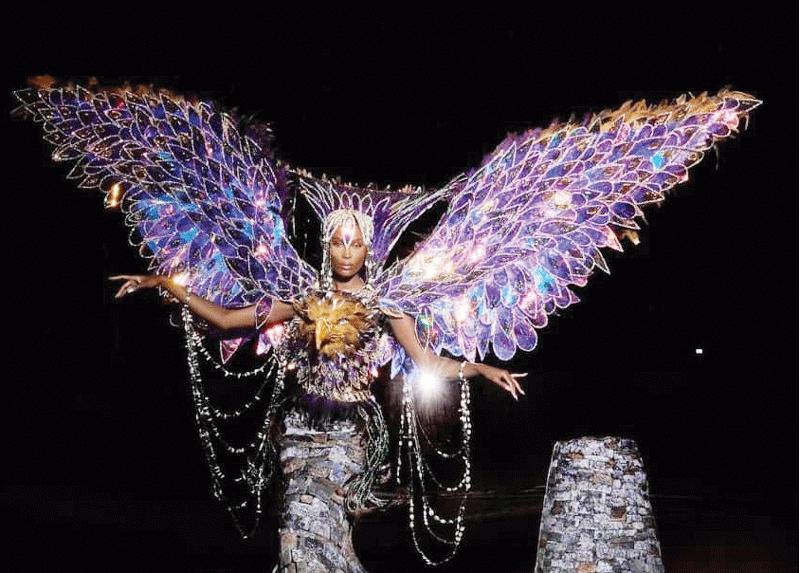
People listen to music for different reasons. Some are interested just in the lyrics, while others are more interested in the beats — and there is also a group that goes for both.
SOUND TRACK: Ronald Magweta

Those who listen to the lyrics are usually the ones who will end up astonished when they learn the actual meaning of a particular song.
It is, therefore, left to the artistes to focus on what they think will make their music go far or what will entertain their fans.
For Zimdancehall artistes, witty wordplays and sexual innuendo have been stepping stones to stardom.
Zimdancehall has been on the scene for nearly two decades now, and most of the artistes that have ‘made it’ to the big stage started off with songs either lacking in substance, meaningless or loaded with a heavy dosage of vulgarity.
Yesteryear music greats like Thomas Mapfumo, Biggie Tembo et al, made music that was full of substance and could be listened to by the whole family, because it had no sexually explicit lyrics.
- Chamisa under fire over US$120K donation
- Mavhunga puts DeMbare into Chibuku quarterfinals
- Pension funds bet on Cabora Bassa oilfields
- Councils defy govt fire tender directive
Keep Reading
This was mainly because music was not easy to get; people had to buy cassettes or records, and there was nowhere one would buy explicit music because they wanted value for money, and because they would probably play the music in the presence of others, compared to now when one can listen to music through their headphones.
With the advent of technology or the internet, music is now a click away from being purchased and downloaded, and since one can play music from their phones, no one may bar them from listening to sexually explicit content.
For some reason, it seems like our generation is fond of such music.
A controversial song can go viral and be a hit within two days of being released.
For instance, Enzo Ishall’s Chiita Kwacho is one of the songs that made him a household name, as he talks about sex, but never mentions the word throughout the song.
I have observed that Zimdancehall songs which do not have substance or contain sexual innuendo have a way of attracting attention and becoming hits.
In fact, Zimdancehall songs which do not have substance or which contain sexual innuendo can be traced back to the days when the likes of Winky D and King Shaddy, to mention but just a few, were up and coming.
Zimdancehall artistes always find a way of “saying things without saying them”, and that is one of the main reasons their songs have resonated with many youths in Zimbabwe.
King Shaddy became a household name after the release of his yesteryear hit song, Zvipanera. The song was clearly about sex although he never mentioned the word, and it became a hit instantly.
When Winky D released his double album in 2010, there was a song called Bigger Size, which was also about sex.
The song might not have become a hit because it was in English or Patois, but was popular among dancehall fanatics and dominated play lists in night clubs.
Souljah Love was put in the limelight by his hit single Simudza Musoro, another controversial song which even the adults or older generation fell in love with, but contained sexual innuendo.
Other Zimdancehall artistes have become one hit wonders because of these type of songs. They will release a controversial song and the fans will love them, but they will end there.
For instance, Boom Betto became people’s favourite when he dropped Munodonhedza Musika, a song that even topped dancehall charts on radio, but he is still to reach that level again.
Jah Signal will tell you that his song Shinga Muroora is not controversial, but fans who attend his shows will tell you how he lets the fans sing the other somewhat unpalatable part of the chorus.
The current crop of young Zimdancehall artistes from Chill Spot; Bazooker, Boss Pumacol and Enzo Ishall are on top of their game and have been propelled to greater heights by releasing such kinds of songs.
Songs like Mabhebhi Akawanda, Party Yevanhu Vasina Kupfeka and Chiita Kwacho have been some of the most played songs in nightclubs.
Zimdancehall artistes have a tendency of releasing two versions of some of their songs — an explicit version for the ‘streets’ and nightclubs and a ‘cleaner’ version for radio.
This trick is also used internationally, especially in Jamaica where most dancehall artistes release a cleaner and a raw version of the same song. This is also the same with music videos; other international artistes actually release explicit videos of their songs as well as the censored ones.
Surprisingly, it seems as if people love the explicit and raw versions of such songs if views on video website YouTube or suggestions on search engine Google are anything to go by. Music videos which are labelled ‘explicit’ on YouTube tend to have more views than the censored ones.
Back home, there are a few Zimdancehall videos which show explicit content. For instance, Platinum Prince’s controversial song titled Time is so explicit that one cannot watch it in the presence of their parents or other respectable people.
Like what some say, controversy sells and it is with no doubt that most of the Zimdancehall artistes who are celebrated have been propelled by songs which contain sexual innuendo or have no moral substance.







